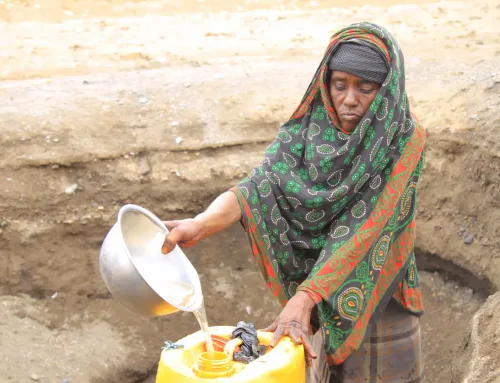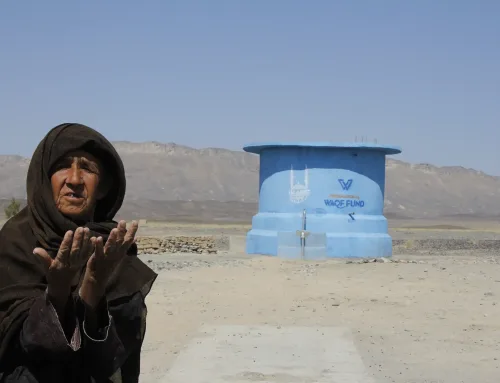In the vast universe of Islamic teachings, few actions carry as lasting an impact as the practice of Sadaqah Jariyah, which serves as a bridge between our worldly lives and our hopes for the Hereafter.
The essence of Sadaqah Jariyah revolves around acts that yield continuous rewards, resonating with the ethos of Islam where believers actively seek actions that bear fruits, not just in this life but extending into the afterlife.
But why does Islam place such immense value on Sadaqah Jariyah?
In this article, we seek to illuminate the profound spiritual dimensions of Sadaqah Jariyah, and we begin by examining its transformative effect on the giver.
Sadaqah as a Means of Increasing Provision
There’s a well-known hadith , narrated by Abu Hurairah (may Allah be pleased with him), quotes the Prophet Muhammad (peace and blessings be upon him) as saying: “Charity does not in any way decrease the wealth and the servant who forgives, Allah only increases the honor of a servant who forgives, and no one humbles himself for the sake of Allah but that Allah raises him in status.”
In another illuminating Hadith from Umm Salamah (may Allah be pleased with her), she recounts the Prophet’s words: “Wealth is never diminished by giving Sadaqah.”
Pondering over these spiritual narrations, it becomes lucidly clear that charity in Islam is not merely an act of benevolence but a divine tool for increasing one’s sustenance and blessings from Allah.
Reflecting upon these noble hadiths, it’s evident that charity is a pathway to increased provision and blessings. The noble Prophet didn’t just refute the notion of decrease; he emphasized the augmentation of wealth and provision.
Sadaqah as a Pathway to Success
Sadaqah Jariyah is not just about individual spirituality. It’s a beacon for community upliftment in Islam. As believers channel their resources to uplift the less fortunate, build institutions of learning, or create facilities for the Ummah, they essentially pave the way for Allah’s blessings and Barakah in all their endeavors. It’s a magnificent synergy between individual Ibadah (worship) and collective welfare in the Islamic framework.
Furthermore, a distinct beauty of Sadaqah Jariyah is its ability to serve as a lasting legacy, where the rewards continue to benefit the giver and can be dedicated to loved ones, be they amongst us or have returned to their Creator.
The Virtue of Sadaqah Jariyah for Parents
Sadaqah Jariyah is a profound means for children to express their gratitude, love, and dutifulness towards their parents, whether they are still among us or have returned to their Creator. It is advisable in Islam for a child to support their parents with ongoing charity, benefiting them in this world and securing continuous rewards for them in the Hereafter.
The Value of Sadaqah Jariyah for the Departed
The impact of Sadaqah Jariyah on those who have passed away is particularly manifest. As narrated by Abu Hurairah, the Prophet Muhammad (peace and blessings be upon him) said: “When a person dies, all their deeds end except for three: a continuing charity, beneficial knowledge, or a child who prays for them.” This Hadith explains that Sadaqah Jariyah acts as an ever-flowing stream of blessings, which, by Allah’s mercy, elevates the status of the deceased in Paradise.
Sadaqah Jariyah as a Shield Against Calamities
From the teachings of Prophet Muhammad (peace be upon him), as narrated in Tirmidhi, he said: “Charity extinguishes the wrath of the Lord and wards off the bad death.” In another Hadith, he said: “Every day two angels descend, and one of them says: ‘O Allah, compensate the one who spends,’ and the other says: ‘O Allah, destroy the wealth of the one who withholds.'”
These narrations emphasize that Sadaqah Jariyah can repel calamities and misfortunes. However, one must approach these teachings with balance and understanding. Charity does not wholly shield one from all tests and hardships, as they are part of Allah’s tests for believers, but through it, Allah might alleviate certain trials.
The Positive Impact of Sadaqah Jariyah on Society
In societies where individuals are devoted to Sadaqah Jariyah, the ripple effects of their continuous charity are palpable. Such communities witness perpetual support for the poor and needy, the realization of charitable projects, and a heightened sense of social solidarity.
Distinct from ordinary charity, Sadaqah Jariyah creates a lasting legacy of benevolence and utility. Its essence is not confined to a one-time financial aid but is an ongoing force for good, although all forms of charity are valuable in their unique ways.
Examples of Sadaqah Jariyah (Ongoing Charity)
Among the renowned examples of Sadaqah Jariyah are the establishment of hospitals, schools, water wells, and mosques.
The waqf shares managed by the International Waqf Fund represent another form of Sadaqah Jariyah. This Fund aggregates contributions and waqf shares, then invests them in a system that is both secure and compliant with Islamic laws. The annual profits are utilized to fund projects that provide ongoing benefits for the needy. To preserve the essence of the waqf and ensure the charity remains ongoing, a portion of the returns is reinvested.
For the acceptance of Sadaqah Jariyah in Islam, it’s imperative that it’s given with a sincere intention for the sake of Allah, not for show or ostentation before others. Allah accepts charity from pure, lawful sources and appreciates discreet giving whenever possible.
Regarding its distribution, Sadaqah is permissible for all who are in need, poor, or destitute, regardless of whether they are Muslim or non-Muslim.
There’s no specific amount or frequency for it, as long as the individual is capable of donating.
In conclusion
Sadaqah Jariyah embodies an immense humanitarian value, serving as a conduit for reaping benefits in both this world and the Hereafter. From increasing one’s sustenance, honoring parents, extending mercy to the deceased, to fostering social solidarity, the concept of Sadaqah Jariyah resonates as a lasting goodness.
Allah Almighty says in His book: “Who is he that will lend to Allah a goodly loan so that He may multiply it to him many times? And it is Allah that decreases or increases (your provisions), and unto Him you shall return.” (Al-Baqarah: 245). Your opportunity to initiate such a noble loan with Allah could begin by contributing a waqf share through the International Waqf Fund.





